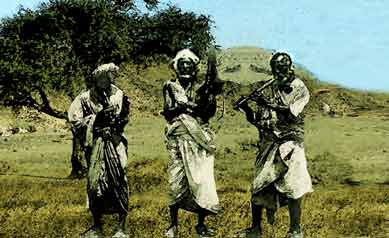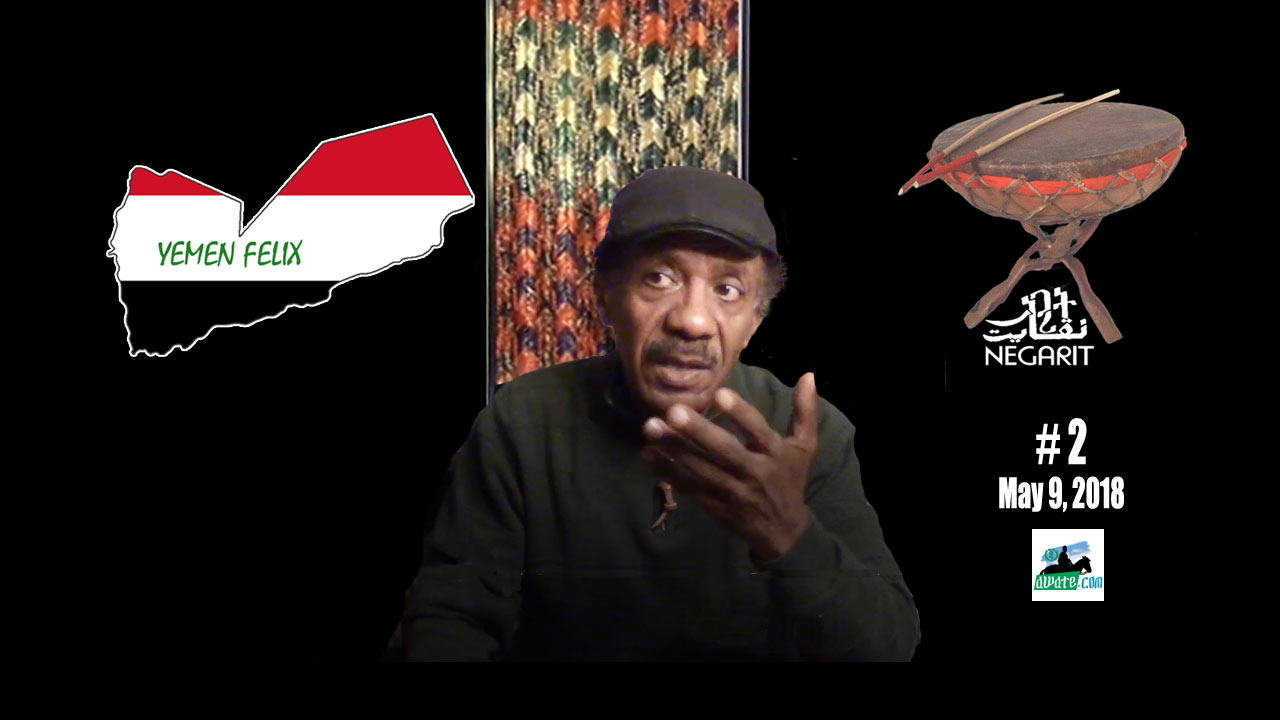It Feels Like Yesterday: It Is All Time’s Fault

In different parts of Eritrea some call it gizie, some call it hmmet, ewan, zemen, and some even call it kunetat. They are all talking about the mighty Time. In Tigrinya lexicon it seems everything is the fault of Time, everyone picks on it. Poor Time!
“Time, you have changed on me, I cannot tread on the ground with confidence, you have rendered me a refugee, devoid of dignity, whose opinion does not matter, unable to accomplish the dreams of my heart, I walk with a stooped head, weak and lamenting, unelectable and with no right to vote, I will question you Time, answer me: why did you strip my pride, love and serenity away?” These are Yemane Baria’s words from the lyrics of his song, Zemen, which was popular during the tumultuous eighties. Yemane blames everything on Time, even the betrayals, and the desertification of the once green pastures of his country.
During the brutal Ethiopian reign, when people talked about the atrocities that the Ethiopians were committing, older people with tears welling up in their eyes and their voices cracking, would cryptically refer to the Ethiopians as ezom seb gizie, the people of the day. They were alluding to the temporal nature of the power that the criminals of the day wielded. In direct contradiction to the fickleness of Time, some named their children Gizie. Several Tigrinya singers have also crooned about Time, mostly decrying it for failing to be on the side of the oppressed, the weak and the sick, begging it to do its magic, reminding it that even the mighty Time has limited time. But the latest song about time by Tesfaalem Arefaine (Korchach), “gizie tezerab”, Time, speak up, takes the blame that has been lodged against Time for ages to a different level; Korchach actually accuses Time for its deafening silence. In it, he implores Time to stand up for itself, lest the blame of Time becomes entrenched, he says.
Korchach criticizes Time for its silence on the face of the onslaught; your name has been tarnished, come out of the closet to defend your name, he challenges. Then he relishes the most obvious of things and tells Time that man is the shrewdest creature, ever. He opined that everyone blames Time for every crime. He dares Time to stand up for itself, to deny the allegations lodged against it and deny people the opportunity to make its name the excuse for their thriftiness, crime and decadence. Time, roll your sleeves to clear your good name. Speak up, Time, come on to the open! He danced to his song, he also danced around the issue, conveniently averting those who ought to be dared, blamed and challenged for their deafening silence when their names are being tarnished, their future squandered, and their pristine history blemished.
When you complain about the situation in Eritrea, PFDJ, the repressive ruling party, and its supporters are fond of replying, “This, Too Shall Pass”, echoing the words of some wise men somewhere in the Orient. Myth has it that an Emperor tasked his advisors to give him a phrase, an aphorism, a proverb that will always hold true. The wise men, pulled all-nighters and huddled to solve the riddle and they came up with, “This, Too Shall Pass”, but many Eritreans believe that it was first said in the Eritrean field! Yemane Ghebreab of PFDJ, in his last appearance in the 10th anniversary of the founding of YPFDJ, reminisced about an old patriotic song that played just before he ascended the podium. With discernable nostalgia he mentioned that they danced to that song when he and his comrade Girma Asmerom worked in the information department. He also teased ambassador Hanna by remembering that she only danced to the song at night. Then quickly added, “it feels like yesterday”. For him time has stopped, he has not felt it, time has not passed. As long he is free, dinning and winening, talking to the fresh faced girls in his YPFDJ outfit, dallying the easy ones, and flying to the finest cities of the globe, it will always feel like yesterday, Time will fly by. But to his former colleagues in the prisons of the PFDJ and in the dungeons of Ella-Ero, it will feel like eternity when they suffer under the heavy shackles that Yemane and his comrades have put on them. PFDJ is forgetting their favorite saying–“This, Too Shall Pass” is universal in its application, both good and bad times, pass.
Along with Time, the month of January is often blamed for all crazy occurrences, “January the crazy” goes the cliché. The Italians say, “Marzo e’ Pazzo”, that March is crazy for its erratic weather, the Sudanese also complain about the heat of the month of May, but the Eritrean blame of January for everything crazy that happens in the month, is misplaced; January is the month of bounty, of beauty, of generosity, of weddings and of celebrations. When the gloomy and dreary rainy season ushers in the harvest, people enjoy their toil, they play, dance, marry and copulate, yet if someone does something wacky, it is the fault of January the “crazy”. I think the old saying of “blemlem daas, bkebero leggas…” should be replaced with “blemlem daas bTirri leggas…” to pay tribute to the generosity and bounty of January.
When the Forto incident of 2013 failed, even my friend Semere Habtemariam, one of the Deans of Tigrinya, penned a poem attributing the demise of a dream to the month of crazy January. I teased him about it, then in October, 2013 after the Lampedusa tragedy, after the PFDJ called the 400 Eritrean youth who perished in the ship wreck “some African migrants”, an Eritrean artist wrote a poem, more of a rhyming lament, and said, “ayye TV-Eri, afriqawiyyan do elikiyom….”, Oh, Eritrean television, how dare you call them illegal African migrants! I am disgusted and ashamed by your patronizing,” he told the department of information. Our artist was disgusted by the words that the bunch of wires, bits and bytes amplified. He danced around it, he did not say PFDJ called the poor souls African migrants, according to him the Eritrean Television did.
Speaking of the YPFDJ, the gathering of mostly Diaspora born and raised young Eritreans, usually the young are the agents of change by virtue of their propensity to embrace radical, daunting ideas. It was the youth movements that inflamed the spark of the Eritrean desire for independence, but YPFDJ in its ten-years life, has acted as a surrogate to the PFDJ and has become the subservient of despotism, corruption, murder and rape that the international community has documented and that Eritreans have witnessed. The YPDJ only has the veneer of the genuine and idealistic Eritrean student and youth moments of the eighties. The speakers of the YPFD donned Jallabiya and Sderiyya, even a young woman went out of her way to swaddle herself in a colorful “lewyet”, a not so sublet attempt to send a message of inclusiveness, opting for the decorative instead of the substantive. The guys and gals, the lads and lassies of the YPFDJ grew their hair to mimic those of the genuine youth and student movements and freedom fighters of generations earlier. The youth of the eighties did not grow their hair to mimic the freedom fighters, or to pretend that they were equal to the freedom fighters in the trenches, they grew it because it was the fashion of the time. The youth of the eighties did not wear the shidda to pretend they were fighters; they wore it because that was what they could afford in the Sudan.
The YPFDJ mimicry did not stop at the head and the feet, they invited the chairman of PFDJ’s almost defunct student and youth union, and in a typical PFDJ style, he had a Muslim name, Saleh Ahmedin and he is neither a student nor a youth, he is a middle-aged man, yet he heads a student and a youth union. So was Yousef Sayiq, so was Amin Hassan, so was Muhyeddin Shengeb, so was Sultan Saeed and so is Saleh Ahmeddin. All Muslims, all middle aged, all non-students, all subservient to PFDJ/EPLF and all not advocates of the youth issue and the future of the country.




Awate Forum